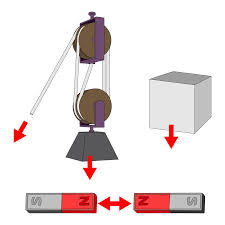记忆方法
将“force”与“for”的发音和“cerebrum”(大脑)的词根联系起来,形成一种视觉联想:想象大脑(cerebrum)在使用强大的力量(force)。这样的联想有助于记忆单词的含义。
以上内容由AI生成, 仅供参考和借鉴
中文词源
force 力量
来自拉丁语fortis, 强壮的,有力量的,坚固的,词源同fort.
英语词源
- force
-
force: [13] The ultimate source of force is Latin fortis ‘strong’, which also gave English comfort, effort, fort, etc. In post-classical times a noun was formed from it, *fortia ‘strength’, which passed into English via Old French force. (The force of forcemeat [17], incidentally, is a variant of farce, in its original sense ‘stuff’, and is not etymologically related to force ‘strength’.)
=> comfort, effort, fort - force (n.)
- c. 1300, "physical strength," from Old French force "force, strength; courage, fortitude; violence, power, compulsion" (12c.), from Vulgar Latin *fortia (source also of Old Spanish forzo, Spanish fuerza, Italian forza), noun use of neuter plural of Latin fortis "strong, mighty; firm, steadfast; brave, bold" (see fort).
Meanings "power to convince the mind" and "power exerted against will or consent" are from mid-14c. Meaning "body of armed men, a military organization" first recorded late 14c. (also in Old French). Physics sense is from 1660s; force field attested by 1920. Related: Forces. - force (v.)
- c. 1300, forcen, also forsen, "exert force upon (an adversary)," from Old French forcer "conquer by violence," from force "strength, power, compulsion" (see force (n.)). From early 14c. as "to violate (a woman), to rape." From c. 1400 as "compel by force, constrain (someone to do something)." Meaning "bring about by unusual effort" is from 1550s. Card-playing sense is from 1746 (whist). Related: Forced; forcing.
权威例句
- 1. They used force to banish the natives from the more fertile land.
- 他们使用武力把土著居民驱逐出了比较肥沃的土地。
- 2. He had wrenched his ankle badly from the force of the fall.
- 他因摔倒而严重扭伤了脚踝。
- 3. More vigorous action is needed to force the federal army to disengage.
- 需要更强有力的行动来迫使联邦军队撤军。
- 4. Never force your legs to overstretch, or you can cause injuries.
- 千万不要迫使双腿过度拉伸,否则会受伤的。
- 5. He changed our world through the force of his ideas.
- 他通过自己观念的力量改变了我们的世界。

